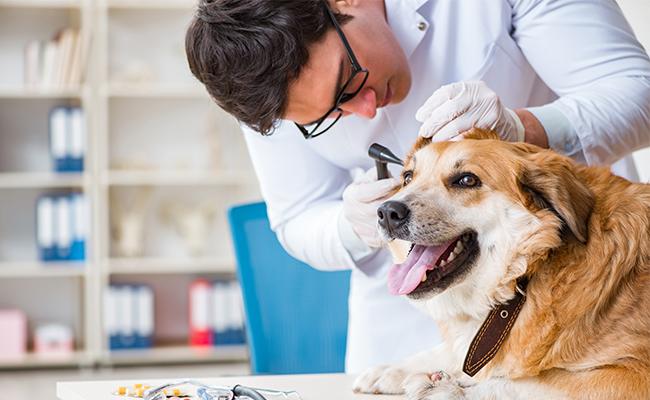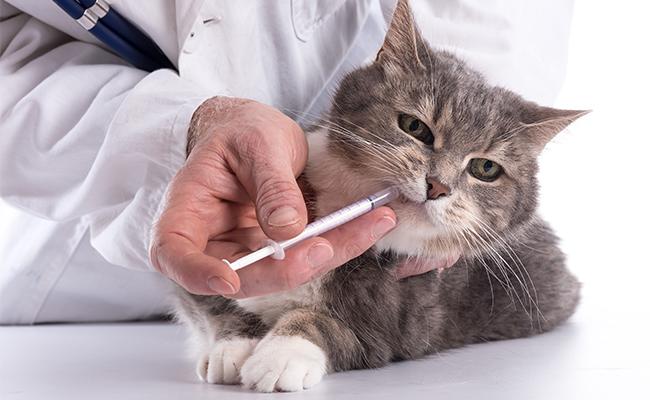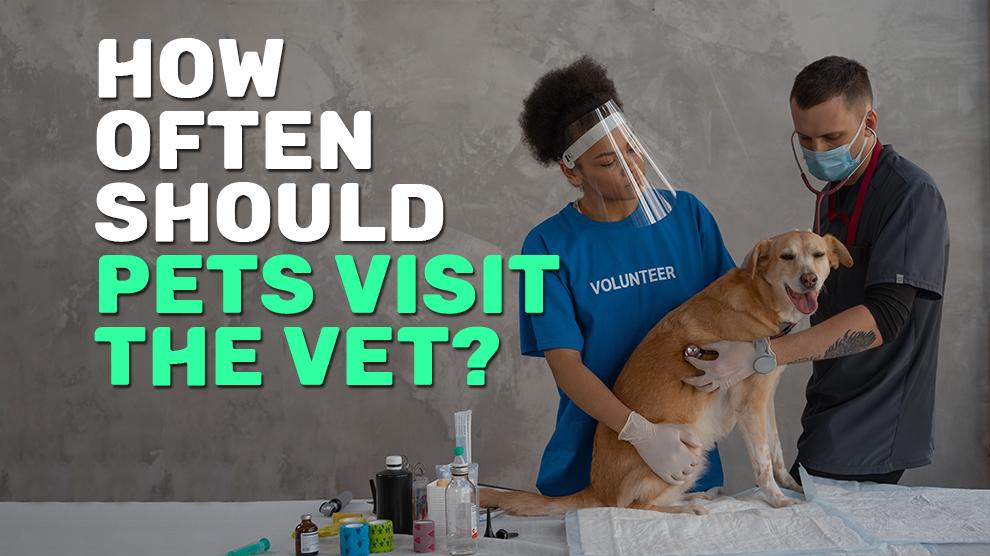Dog Pregnancy Calculator And Timeline
Visits to the vet are essential in keeping your beloved pets healthy and strong. In many cases, they help make your pet’s life longer by detecting early symptoms of serious health problems.
In addition, animal doctors can prescribe proper diet plans and supplements in order to enhance the overall health condition of your pet.
If you’re a beginner pet owner, you may want to know how frequently you need to bring your furry or feathery friend to the vet.
That information will help you plan and make regular visits so that your pets will get the routine checkups they require. You could key in ‘best veterinarian near me’ and similar search entries to find a trustworthy veterinarian in your locality.
Keep reading to get some insights on how often your pets should visit their doctor.
What Are Examined During Regular Checkups?
Checkups are necessary for your pets’ well-being. They provide an exclusive space and time for a thorough medical inspection.
Checkup results will inform you whether your pets have existing health issues so you can take the necessary actions and adjustments to prevent the problem from worsening or developing.
To give you a better idea about vet visits, here are some of the things that a veterinarian does during a checkup:
Takes Vital Signs
Vets or their aides take the pet’s vital signs to determine if their bodily functions are within normal range. If the numbers taken by the doctor are lower or higher than expected, your pet may have an existent health problem that needs to be addressed.
Typically, data from the vital signs serve as one of the bases of the diagnostic test and more extensive checkups. Some of the critical signs taken are the following:
- Temperature
- Pulse rate
- Weight
- Respiration rate
Conducts Routine Assessments
Apart from vital signs, the vet would inspect the animal’s eyes, mouth, tongue, nose, and ears, depending on the type of pet. They also examine the limbs, feet, and joints, especially when the pet is suspected of having fractures and other bone issues.
If symptoms or severe signs show, the vet may call for a more targeted inspection that might require laboratory tests such as blood chemistry and X-ray.
Vaccinates Pets
Administering vaccines to pets is equally essential to ensure their overall health and wellness. Pet vaccination keeps your loved ones protected against animal-borne diseases.
It also helps you avoid the expensive treatments necessary to cure your infected pets. In addition, it prevents the transmission of diseases from your pet to you and other people.
Runs Health Screening Tests
Based on your pet’s general health condition and age, they may need to undergo various health screening tests. When dogs and cats reach a particular age, their health screening tests may become more frequent, especially if they show regression.
Above all, such tests are essential to find a reasonable explanation as to why a particular pet is sick or behaving strangely.
The Right Frequency Of Veterinary Visits
Dogs

Puppy (Newborn To One Year)
Puppies need to visit the vet every three weeks up to their 16th week. Generally, these visits are for vaccination purposes. Apart from this, your puppies may need to get booster shots against the following canine diseases as they could be fatal:
-
Kennel Cough
Kennel Cough is characterized by coughing, vomiting, seizures, and even death.
-
Canine Distemper
Canine Distemper is caused by a virus that affects the nervous, digestive, and respiratory systems. It’s characterized by eye and nose discharge, twitching, diarrhea, paralysis, and death. In many cases, the dog’s footpad becomes hard and thick.
-
Canine Hepatitis
Although the dog’s liver receives the worst effects, canine hepatitis also impacts the dog’s eyes, kidneys, lungs, and spleen. When it’s detected early, the dog could survive, especially if they’re vaccinated against the disease. On the other hand, unvaccinated pets are likely to contract the virus and have a higher possibility of succumbing to it.
-
Parvovirus
Vaccination against parvo is essential to survive the disease, especially for puppies aged four months and below. This virus attacks the gastrointestinal system and often results in vomiting and bloody diarrhea.
-
Rabies
Rabies vaccination is one of the oldest and most common types of vaccination for all pet mammals. The virus behind this disease attacks the central nervous system, causing fear of water, hallucination, drooling, anxiety, paralysis, and death.
What makes it even more daunting is that it could be transmitted to humans. Rabies vaccination is one of the required certificates whenever you bring your pet to another country or a pet event.
In the puppy stage, the vaccination for a vast array of diseases is most frequent. Apart from immunization, you may need to seek the vet’s help to protect your pet from ticks and heartworms. Generally, doctors prescribe antibiotics and preventives for that purpose.
You also have to bring your puppies to the vet when they reach their six-month mark. This time, you have the option to spay or neuter your puppy. Male dogs typically become fertile after six months, so they may need to be castrated weeks before that if you choose to neuter them.
Adult (One To Eight Years)
When puppies reach their 12-month mark, they’re already considered adult dogs. When this happens, they’d require annual checkups. Many of these are head-to-tail physical inspections. The vet may offer booster shots for parvo and rabies to increase your pet’s immunity to deadly diseases.
Senior (Over Eight Years)
Older dogs need at least biannual visits. In many cases, the vets inspect the dog’s urine, liver, kidney, and hormone levels as they’re commonly affected. Yet, they also suffer from bone and joint problems, such as arthritis. In addition, senior dogs may need a proper physical exam, especially for the eyes.
Cats

Like with dogs, the frequency of vet visits for cats varies depending on their age.
Kitten (Newborn To One Year)
A kitten should also visit the vets every three to four weeks. In many cases, their visits are for vaccination and physical exam purposes. The kitten’s vaccination may start at six weeks old and be repeated as a booster every three to four weeks. The following are the shots often administered to kittens:
-
Feline Distemper
This is a highly contagious disease caused by the feline parvovirus, resulting in nasal discharge, dehydration, vomiting, and death. While this disease has no treatment and is highly transmissible, core vaccinations lessen the effects of the symptoms so cats can survive.
-
Feline Herpes Virus
This primarily attacks the respiratory system. Vaccination decreases the effects of the virus and prevents diseases from recurring.
-
Calicivirus
The vaccination for this viral disease must be done early as the virus attacks kittens most of the time. Although most cats could recover from this illness, some don’t make it, especially if they’ve contracted any of the more severe strains.
-
Rabies
Rabies vaccinations for cats are bound by law. Because of this, kittens are inoculated within their first 12 months of life. Usually, the vaccine’s effect runs until their first year. Then, the felines may have the next rabies vaccine every one or three years. If rabies-related concerns show up, you need to bring your kitten to the vet at the soonest possible time.
Adult (One To Seven Years)
Adult cats need to visit their vets every six months. These clinic visits are often for rabies and distemper vaccines that normally last for three years. However, some vets could still administer those shots more frequently if they find that your cat has low immunity levels to fight off such diseases.
Apart from vaccination, adult cats need to visit their vets for the following:
- Dental cleanings
- Vital sign inspections
- Fur and skin checkups
Senior (Over Seven Years)
If your cats are more than seven years old, they need to visit your doctor two to three times a year. Aside from vaccination, senior cats need medical checkups for kidney and liver problems. In addition, a detailed medical plan for long-term conditions such as arthritis and obesity should be created for them.
General Examinations
Regardless of the type of pet, general examinations are done to determine whether or not your pet’s usual bodily functions are within the normal range. Some of the standard tests zero in on the following aspects:
- Weight
Above-average weight could be associated with shorter life expectancy, heart disease, and arthritis. Being aware of this issue early on could be a way for the vet to prescribe activities and programs to reduce your pet’s weight.
- Eye Exam
An eye checkup could help determine the severity of particular eye diseases, from pink eye to glaucoma.
- Dental Exam
Through dental exams, vets can prescribe suitable dental treatments for your pet’s oral diseases, such as plaque deposits, bleeding gums, and chewing difficulty.
- Skin And Fur Exam
Pets, in one way or another, could suffer from skin and fur diseases. The vet would prescribe treatment methods and medicine to cure allergies and fungal and bacterial infections.
- Joint And Movement Exam
These exams are helpful when it comes to preventing the development of physical deformities in pets. If your pet’s joint and bone problems are ignored, their joints might become swollen and painful.
Wrapping Up
Knowing the right time and frequency to visit the vet is essential for every pet owner. Coupled with proper nutrition and care, regular veterinary checkups would allow you to provide the best treatment to your pets regardless of their kind.
Of course, should any health emergency arise, bring your pet to their doctor as soon as possible even if their next scheduled visit is still far off.


















